As work on epigenetic treatments continues, we continue to showcase all the novel research and possible therapies that might make several age-related diseases much more treatable. Here’s what happened in January.
LEAF News
Interviews
 Andrew Steele: “A Mindset Shift Is Required”: Andrew Steele is a physicist who became interested in longevity several years ago and began a career as a bioinformatician before becoming a longevity advocate, quickly making a name for himself with numerous media appearances.
Andrew Steele: “A Mindset Shift Is Required”: Andrew Steele is a physicist who became interested in longevity several years ago and began a career as a bioinformatician before becoming a longevity advocate, quickly making a name for himself with numerous media appearances.
Mikhail Batin’s Crusade Against Aging: There’s no other way to put it: Mikhail (Misha) Batin is an oddball in the longevity space. In this field, which is populated mostly by scientists, entrepreneurs, and enthusiasts, Batin belongs to a different breed: activists.
Advocacy and Analysis
 Female-Specific Aging Trajectories Remain Understudied: In a recent Perspective published in Nature Aging, researchers noted a lack of studies on female-specific physiological factors on aging trajectories. They proposed solutions, including model systems, to address the issue.
Female-Specific Aging Trajectories Remain Understudied: In a recent Perspective published in Nature Aging, researchers noted a lack of studies on female-specific physiological factors on aging trajectories. They proposed solutions, including model systems, to address the issue.
Research Roundup
Study Suggests Trade-Offs Between Reproduction and Lifespan: Scientists might have found support for the antagonistic pleiotropy theory of aging, which suggests that evolution selects some genetic traits that are associated with shorter lifespans because they also help us reproduce.
 A Carrot Extract Improves the Metabolism of Old Mice: In Nature Communications, researchers have published their discovery of a compound found in carrots that promotes mitochondrial health and improves the physical abilities of older mice.
A Carrot Extract Improves the Metabolism of Old Mice: In Nature Communications, researchers have published their discovery of a compound found in carrots that promotes mitochondrial health and improves the physical abilities of older mice.
TLR5 Activation Improves Health and Lifespan in Aged Mice: By activating toll-like receptor 5, an important element of the innate immune system, scientists have increased lifespan and improved multiple health measurements in old mice, despite having started the treatment late in life.
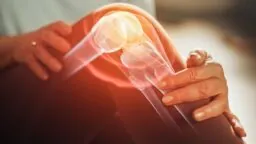 Treating Arthritis with Rapamycin-Releasing Nanoparticles: Researchers have described how specialized nanoparticles, which deliver rapamycin and the antioxidant astaxanthin, restore macrophage balance and reduce inflammation in a mouse model of osteoarthritis.
Treating Arthritis with Rapamycin-Releasing Nanoparticles: Researchers have described how specialized nanoparticles, which deliver rapamycin and the antioxidant astaxanthin, restore macrophage balance and reduce inflammation in a mouse model of osteoarthritis.
David Sinclair on Human Trials of Anti-Aging Compounds: A new review authored by three acclaimed geroscientists paints a promising picture of past and ongoing human clinical trials of prospective anti-aging drugs.
 Stress in Pregnancy Linked to Shorter Infant Telomeres: A new study published in BMC Psychiatry reviewed literature that links perceived stress during pregnancy with newborns’ telomere length. Telomeres are protective caps at the end of chromosomes. The shortening of the telomeres, which happens with each DNA replication cycle, is one of the Hallmarks of Aging.
Stress in Pregnancy Linked to Shorter Infant Telomeres: A new study published in BMC Psychiatry reviewed literature that links perceived stress during pregnancy with newborns’ telomere length. Telomeres are protective caps at the end of chromosomes. The shortening of the telomeres, which happens with each DNA replication cycle, is one of the Hallmarks of Aging.
An Exercise-Related Protein May Protect the Heart: Researchers publishing in Aging have pinpointed a protein that increases after exercise and is associated with a reduced risk of coronary artery disease. Coronary artery disease directly kills more people than anything else in the world.
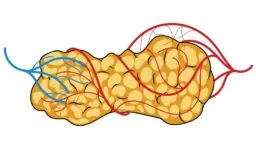 Improved Brain-Fat Communication Extends Lifespan in Mice: A new study suggests that the dysregulation of the crosstalk between hypothalamus and white adipose tissue affects aging. Rescuing this “communication channel” led to significant lifespan extension.
Improved Brain-Fat Communication Extends Lifespan in Mice: A new study suggests that the dysregulation of the crosstalk between hypothalamus and white adipose tissue affects aging. Rescuing this “communication channel” led to significant lifespan extension.
How Parkinson’s Disease Perpetuates Itself: A new paper elaborates on how and why microglia fail to clean up the α-synuclein protein of Parkinson’s disease, gradually making the disease worse.
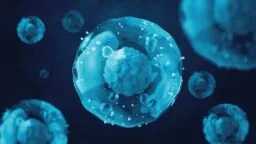 Enhanced CAR T Cells Eradicate Multiple Cancers: Scientists have created improved CAR T cells that also express the cytokine IL-10. The new cells proved highly effective in mice and in a pilot human trial. Chimeric antigen receptor (CAR) T cells are among the most promising treatments in oncology.
Enhanced CAR T Cells Eradicate Multiple Cancers: Scientists have created improved CAR T cells that also express the cytokine IL-10. The new cells proved highly effective in mice and in a pilot human trial. Chimeric antigen receptor (CAR) T cells are among the most promising treatments in oncology.
Combining Common Anti-Aging Interventions and Exercise: A review recently published in BMC Biology suggests that taking gerotherapeutics while exercising doesn’t have advantages over separate treatments. Exercise is a well-established intervention that ameliorates several aspects of aging.
 A Marker of Insulin Resistance Predicts Kidney Disease: A recent study published in GeroScience has investigated whether or not a common index of metabolic syndrome can be applied to chronic kidney disease (CKD).
A Marker of Insulin Resistance Predicts Kidney Disease: A recent study published in GeroScience has investigated whether or not a common index of metabolic syndrome can be applied to chronic kidney disease (CKD).
Google’s Chatbot Does Medical Interviews Better than Humans: Scientists at Google have created an AI chatbot for conducting medical interviews. It matched or surpassed human primary care practitioners on most criteria, including accuracy, politeness, and empathy.
 A Better Environment May Ameliorate Early Aging: Publishing in Aging, researchers have reversed the early aging of prenatally harmed young mice by exposing them to a more enriched environment. Newborn rodents from sleep-deprived mothers have conditions that are biologically similar to the processes of aging.
A Better Environment May Ameliorate Early Aging: Publishing in Aging, researchers have reversed the early aging of prenatally harmed young mice by exposing them to a more enriched environment. Newborn rodents from sleep-deprived mothers have conditions that are biologically similar to the processes of aging.
Physical Activity May Decrease Disability-Related Mortality: In GeroScience, researchers have published an analysis of a cohort study, concluding that adherence to physical activity recommendations can mitigate the increased mortality associated with disability.
 Plant Protein Is Associated with Lifelong Health: A new large cohort study suggests that protein might be healthier than some other nutrients and that plant protein is especially beneficial for lifelong health. The ideal amount of dietary protein has always been a subject of significant scientific debate.
Plant Protein Is Associated with Lifelong Health: A new large cohort study suggests that protein might be healthier than some other nutrients and that plant protein is especially beneficial for lifelong health. The ideal amount of dietary protein has always been a subject of significant scientific debate.
Different Risks for Men and Women’s Cardiovascular Health: In a recent paper published in Nutrients, the authors investigated longitudinal data regarding dietary and lifestyle factors that impact cardiovascular risk in males and females
 Fasting and NSAIDs May Work the Same Way: In a new paper in Cell Reports, researchers have named a little-known lipid as a core reason why inflammation decreases with fasting and may also shed light on how non-steroidal anti-inflammatory drugs (NSAIDs) work.
Fasting and NSAIDs May Work the Same Way: In a new paper in Cell Reports, researchers have named a little-known lipid as a core reason why inflammation decreases with fasting and may also shed light on how non-steroidal anti-inflammatory drugs (NSAIDs) work.
CAR T Therapy Lowers Senescence, Improves Health in Mice: Scientists have created CAR T cells that target senescent cells. This approach alleviated metabolic dysfunction in mice.
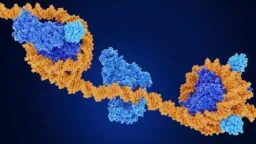 Epigenetic Reprogramming to Repair Genetic Damage: Steve Horvath, Vera Gorbunova, Alejandro Ocampo, and their team have used partial reprogramming to repair DNA damage in a mouse model. They published their findings in Frontiers in Aging.
Epigenetic Reprogramming to Repair Genetic Damage: Steve Horvath, Vera Gorbunova, Alejandro Ocampo, and their team have used partial reprogramming to repair DNA damage in a mouse model. They published their findings in Frontiers in Aging.
Epicatechin Protects Rats from Myocardial Infarction: A new study suggests that the flavonoid epicatechin, found in chocolate, tea, and berries, provides robust protection against reperfusion injury in myocardial infarction. When blood rushes back to a previously oxygen-deprived tissue, it creates reperfusion injury, which accounts for about half of the total damage.
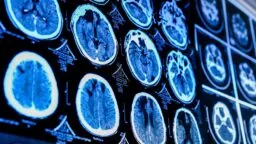 Brain Cancer and Therapy May Lead to Brain Aging: In a recent study published in Aging Cell, researchers found similarities between glioblastoma and Alzheimer’s disease patients in their gene expression and protein profiles. The majority of patients with brain tumors develop irreversible, progressive neurocognitive dysfunction, sometimes long after their treatment.
Brain Cancer and Therapy May Lead to Brain Aging: In a recent study published in Aging Cell, researchers found similarities between glioblastoma and Alzheimer’s disease patients in their gene expression and protein profiles. The majority of patients with brain tumors develop irreversible, progressive neurocognitive dysfunction, sometimes long after their treatment.
The combination of physical activity with fruit and vegetable intake associated with life satisfaction among middle-aged and older adults: Adopting multiple healthy behaviors in daily life is a safe and effective approach to promote life satisfaction among older adults.
OXR1 maintains the retromer to delay brain aging under dietary restriction: Multi-omic analyses in flies and humans showed that decreased Mtd/OXR1 is associated with aging and neurological diseases.
Impact of Intermittent Fasting and/or Caloric Restriction on Aging-Related Outcomes in Adults: A Scoping Review of Randomized Controlled Trials: These findings suggest that intermittent fasting has health benefits in a variety of conditions and may be better accepted and tolerated than caloric restriction, but more comparative research is required.
Effect of multivitamin-mineral supplementation versus placebo on cognitive function: results from a meta-analysis of 3 cognitive studies: This meta-analysis indicates that daily multivitamin-mineral supplements significantly benefit both global cognition and episodic memory.
Association of sleep duration, chronotype, social jetlag, and sleep disturbance with phenotypic age acceleration: This study aimed to examine sleep characteristics with biological age.
Epigenetic drift underlies epigenetic clock signals, but displays distinct responses to lifespan interventions, development, and cellular dedifferentiation: The authors identify key linkages between epigenetic disorder and epigenetic clocks and demonstrate the multifaceted nature of epigenetic aging.
Epigenetic Reprogramming as a Key to Reverse Ageing and Increase Longevity: The reviewers highlight the major epigenetic changes during ageing and the state-of-art of the current emerging epigenetic reprogramming strategies leveraging on transcription factors.
Longevity interventions modulate mechanotransduction and extracellular matrix homeostasis in C. elegans: These results provide in-vivo evidence that coordinated ECM remodeling through mechanotransduction is required and sufficient to promote longevity, offering potential avenues for interventions targeting ECM dynamics.
Growing old while staying young: The unique mechanisms that defy aging in plants: Senescence in plants does not work the same way as it does in animals.
Seven knowledge gaps in modern biogerontology: Implications of these knowledge gaps, especially in the context of ongoing attempts to develop effective interventions in ageing and longevity, are also discussed.
Chitosan alleviates ovarian aging by enhancing macrophage phagocyte-mediated tissue homeostasis: The low molecular weight chitosan used in this study is a potential therapeutic strategy for age-related ovarian dysfunction.
Researching New Drug Combinations with Senolytic Activity Using Senescent Human Lung Fibroblasts MRC-5 Cell Line: The authors found two effective senolytic combinations with dasatinib in addition to dasatinib and quercetin by using resveratrol and ellagic acid.
Autophagy induces hair follicle stem cell activation and hair follicle regeneration by regulating glycolysis: Autophagy activated hair follicles by promoting the transition from regular metabolism to glycolysis, ultimately initiating the hair follicle cycle and promoting hair growth.
News Nuggets
 Kizoo Leads Financing Round in Reservoir Neuroscience: Reservoir Neuroscience announced today the completion of a $4M financing round to support its development of new therapies for neurodegenerative diseases. Reservoir will use the funds to develop its novel class of drug compounds designed to restore health to the brain’s blood vessels in order to rejuvenate the aging brain.
Kizoo Leads Financing Round in Reservoir Neuroscience: Reservoir Neuroscience announced today the completion of a $4M financing round to support its development of new therapies for neurodegenerative diseases. Reservoir will use the funds to develop its novel class of drug compounds designed to restore health to the brain’s blood vessels in order to rejuvenate the aging brain.
Coming Up
Join Leading VCs at the Rejuvenation Startup Summit 2024: The Rejuvenation Startup Summit (Berlin, May 10-11, 2024) is a vibrant, in-person networking event that brings together startups and members of the longevity venture capital/investor ecosystem – all aiming to create therapies to vastly extend the healthy human lifespan.



